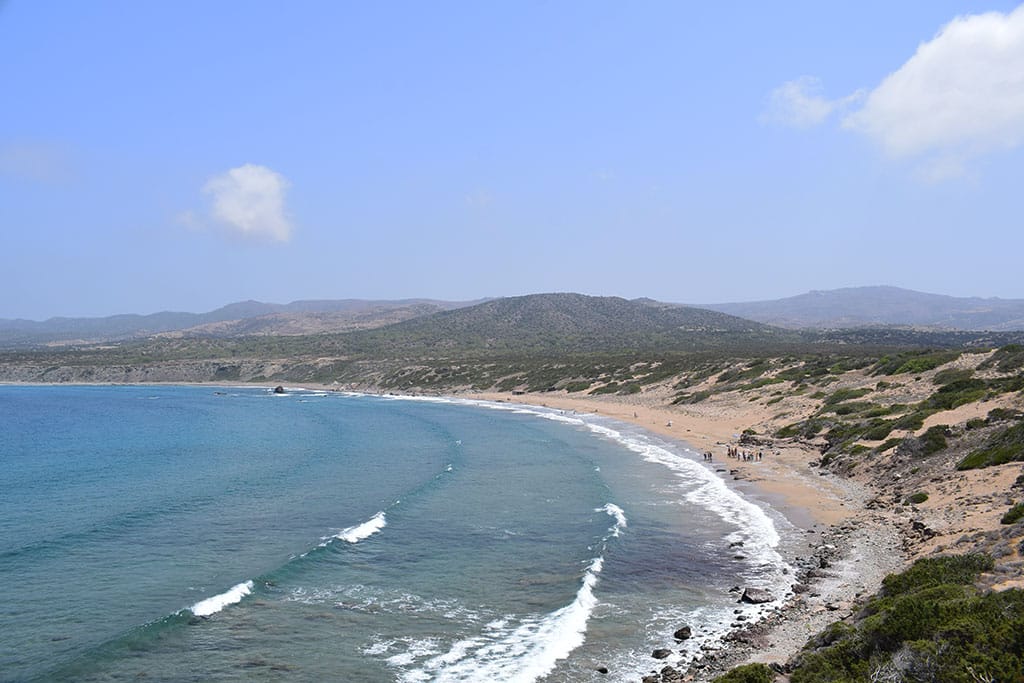The severed foot found on Lara Bay beach in Paphos on Sunday belongs to an adult, according to an anthropologist commissioned to investigate it.
Paphos police assistant operations director Michalis Nikolaou explained on Thursday morning that a medical examiner and an anthropologist had both examined the foot on Wednesday.
He said they had determined that the foot is in a state of saponification, meaning that the foot’s tissue fat has been transformed into adipocere, a wax- or soap-like substance which is also known as “corpse wax”.
Adipocere is formed by the anaerobic bacterial hydrolysis of fat in body tissue – in other words, a microorganism had used water to break down the chemical bonds of the foot’s fat tissue, creating the corpse wax as a biproduct.
Nikolaou also confirmed that the foot was a right foot, and that samples had been taken for genetic testing purposes.
He added that police investigations on land and sea had concluded without any further evidence being found.
The foot had been found severed at the ankle and inside a shoe on the beach by a swimmer on Sunday afternoon. The swimmer had picked it up, put it in a plastic bag, and taken it to the Peyia police station at around 7pm the same day.
While the incident is alarming, British doctor Karan Raj had already put forward an explanation for a similar phenomenon experienced in the United States and Canada in previous years.
He said that “when a human corpse sinks to the bottom of the sea, it is quickly set upon by scavengers.”
“These scavengers are lazy feeders; they prefer to tackle the softer parts of our body than the tough gristly bits. Some of the softest parts of us are the soft tissues and ligaments around our ankles,” he explained.
For this reason, he said, “when scavengers chow down on this, the foot will detach easily from the rest of the body.”
In addition to this, he said, feet have been washing up on beaches more frequently as shoes have in recent decades become more buoyant.
The finding of a foot on a beach in this manner tallies with the washing up of multiple dead bodies on Cyprus’ beaches during the first few months of the year.
Most recently, a body was found in an advanced stage of decomposition in the area of Sotira in the Famagusta district. Earlier, bodies had been found on beaches in the Karpas peninsula and near Ayios Epiktitos on the island’s northern coast.
Many but not all of those bodies found on Cyprus’ coasts were believed to have been people who lost their lives on migrant boats headed for Cyprus from Lebanon.
Following the finding of two bodies near Ayios Epiktitos in the space of 24 hours and eight bodies on Turkey’s southeastern coast, the governor’s office of Turkey’s Antalya province said it had contacted the Lebanese Embassy in Ankara to inform them that contact had been lost with “a ship carrying around 90 people” which had departed from Lebanon bound for Cyprus.
The bodies which were washed up in the north were given funerals, with four of them buried in Rizokarpaso and two more buried in Ayios Amvrosios, near Ayios Epiktitos.
“The dead bodies washed up on the shore in recent days and the findings that the clothes on a few of these bodies are Syrian-made point to an urgent and serious humanitarian situation,” the Refugee Rights Association, a non-governmental organisation in the north, said at the time.
“This situation is a reflection of the civil war in Syria and human rights violations in the region, and requires urgent measures to be taken,” it added.







Click here to change your cookie preferences